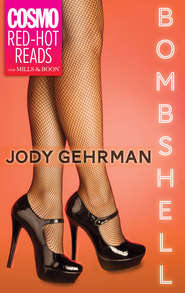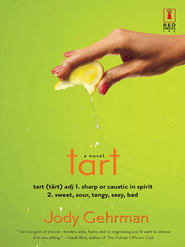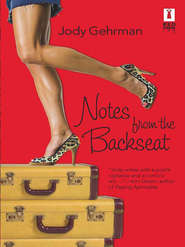По всем вопросам обращайтесь на: info@litportal.ru
(©) 2003-2024.
✖
Summer in the Land of Skin
Автор
Год написания книги
2018
Настройки чтения
Размер шрифта
Высота строк
Поля
But I don’t want to stop—I’m empty and reckless, empowered by the sound of my own voice. “I’m not even living, Mom. I haven’t been alive for fourteen years.”
She gets up so suddenly that her chair knocks against the plate-glass window and her empty espresso cup topples over. She rights the cup quickly and snatches her briefcase. “I’m going outside,” she says, already moving toward the door. A muscular bike messenger inadvertently blocks her way for a moment, and she elbows past him, fumbling in her pocket for cigarettes.
Alone now with the crepes and the coffee, a calm comes over me, and the smell of food fills my head. I cut a piece of crepe with the edge of my fork and skewer a strawberry. I place the bite in my mouth carefully, like someone conducting an experiment. I chew slowly, and the flavors unfold with an intensity that shocks me; I can taste every seed inside the berry, every ounce of sweetness, the butter in the crepes, the eggs, the cream—it all sings on my tongue with a symphonic unity. For fourteen years, everything has tasted like variations on oatmeal. And now, suddenly, this wild thing is happening inside my mouth—a reminder of what it’s like to be alive.
That night I find myself sitting across from Aunt Rosie in the hip little Mission District dive she favors, The Boom Boom Room, where the lights are Chinatown red and the people all wear loud, retro-print shirts.
“I want you to know, kiddo, I think it’s just great you told your mother off.” Rosie is compact and feisty, with a bit of the bulldog in her. She has a boxer’s nose, thick, ungainly lips, and her body is built like a miniature tank, with almost no visible neck. She always wears platform shoes, and glitter on her eyelids; occasionally she is mistaken for a drag queen. “God knows she needed it. If Helen had her head stuffed any farther up her ass, she’d have to have it surgically removed.” She laughs at her own joke—one quick, staccato bark—and then looks unconvincingly contrite. “I’m sorry, kitten, I’m not here to badmouth your mother.” She takes a swig from her Miller Light. “She wasn’t always so uptight, you know. Back in the day, she was quite the party girl.” She rotates her beer bottle, a sad smile lingering on her lips. Then she sees me watching her, and looks suddenly self-conscious. “So anyway, what’s next?”
Without knowing I’m going to say it, I blurt out, “I want to build guitars, like Dad.”
She looks at me in surprise, then smiles. “Groovy,” she says. “Do you still play?”
I shake my head. “Not since he died. Mother didn’t want any music in the house.”
“Good God. That woman.” She takes off her pink fur coat and finishes her beer. “I don’t know why she has to be like that. It’s not good for you. It’s not good for her, either.”
“She acts like he never even existed.”
“I know,” she says. “It’s sad. I always thought it was sad.” She pushes my White Russian toward me. “Drink up, baby girl! You haven’t had a sip.”
I put the straw to my lips and suck a little of the sweet, creamy liquid. I’m not used to drinking, really. I’m not used to going out at all, lately.
“Well, I’m not surprised you want to learn the trade. You’ve got guitars in your blood. Your dad and Bender were legends.”
“Who’s that?”
“Elliot Bender. Old friend of your dad’s. They had a business for years—shit, they made guitars for Jerry Garcia, Bob Dylan, Bo Ramsey.” She looks around the bar dreamily, remembering. “They had a falling-out—everything fell apart. It was ridiculous, really.” She turns to me abruptly, her eyebrows raised high. “I have an idea,” she says.
It takes me one day to prepare, with Rosie’s help. I break my lease and fill my dad’s old leather backpack with four changes of clothes, ten pairs of underwear, a toothbrush, floss, and a notebook. I’ve got a thousand dollars to my name. Rosie insists on lending me her third ex-husband’s pickup truck. I leave my furniture and most of my belongings in her cluttered garage, with little hope of ever finding them again, buried in that sea of ancient trunks and stereo speakers, plastic shower curtains and milk crates full of yellowed photos.
Standing outside her old Victorian in go-go boots and a red chenille robe, Rosie cuts quite a figure in the chilly morning fog. It’s too early for her—seven a.m.—and it shows. Her hair is hectic with static electricity, and rings of mascara circle her puffy eyes. She yawns wide as she hands me an envelope and a carved statue of a Hindi god that fits in the palm of my hand.
“What’s this?”
“Shiva was your dad’s favorite—he took that thing with him everywhere. I figured you should have it.” I stand there on the sidewalk, fingering the smooth, cherry-colored wood, trying to imagine it in his hand. “Open the envelope later. It’s another good luck charm.” She smiles sleepily, and I hug her. “Now get out of here,” she says. “Before someone sees me like this.”
I forget all about the envelope until I’m in Portland, late that night, surrounded by the quiet gloom of a rest stop. I’ve been driving so many hours, when I rest my head against the steering wheel and close my eyes, I still see the road rushing at me. I reach for my backpack and take out the envelope, hold it in my hands a moment before opening it carefully. There’s a Bob Dylan quote scribbled in large, messy letters on the back of an ATM receipt. Kitten: She’s got everything she needs, she’s an artist, she don’t look back. XOXOXO, Rosie. I sit there, smiling in the dim yellow cast by the dome light, reading her words over and over, lingering on the urgent X’s and O’s. In the envelope is a crumpled one-hundred-dollar bill. As I pull back onto the interstate, I can feel a dull stinging behind my eyes, and I know if I weren’t so out of practice, I would cry.
On impulse, I get my hair cut in Seattle. I decide to let Ray, a high-strung man in a shaggy vest and leather pants, have total creative freedom with me above the neck. It takes hours, and there’s a lot of paraphernalia—intricate layers of foil, multiple applications of toxic-smelling goo. When he’s done, he spins the chair toward the mirror, and I barely recognize the girl staring back at me. I look like a 1920s starlet—he’s fashioned me in a chin-length bob, shorter in back like the flappers used to wear, and he’s highlighted my blond with streaks of bright gold.
“Girl,” he says, appraising me proudly, “I’ve really outdone myself today.”
As I’m driving the last seventy miles north to Bellingham, I tug at the rearview mirror now and then to look at myself. Each time, I’m startled by the strange woman staring back at me.
CHAPTER 2
So This Is Bellingham
I arrive. My mouth is so dry, it feels like somebody replaced my tongue with a wad of cotton. I drive past old houses painted creamy whites and weather-beaten yellows, wild gardens filled with morning glories and nasturtiums tossing gently in the breeze. The blues are bluer here, the greens greener. I turn a corner and catch my breath; there’s the bay, its wind-textured surface catching the gold. My heart is thumping inside me as I drive. Everything—the cars, the buildings, the people strolling about on the sidewalks—seems like moving photographs, hand-painted in tasteful colors. On the air I can smell a trace of salt, mixed with a strange, pulpy odor.
Driving along the main street that slopes gradually toward the bay I pass the old brick buildings of a small downtown. The sun is warm through my windshield. There are couples and students window-shopping and sipping from paper cups. They look sleepy and content.
I hear a loud shriek and I turn to see a girl in a dress and combat boots, one hand on her hip, the other hand pointing directly at her companion, a long-haired guy leaning against an old station wagon, covering his eyes and shaking his head. The girl begins kicking at the tires of the car, her brown hair flying. I slow to a crawl, mesmerized by the rage in her movements. She looks up at me for an instant, her hair still in her face, making her look feral and dangerous; our eyes hold, and the moment stretches on strangely. The man turns and stares at me now, too. Then all at once, the girl cries, “What are you looking at, bitch?” and the car behind me starts honking.
I shake myself from the trance and pull my foot off the brake, put it back on the gas. From my radio, Johnny Cash sings, Drive on, don’t mean nothin’, drive on.
It takes me a good two hours to find Elliot Bender. Aunt Rosie wasn’t able to dig up his phone number, so he has no idea I’m coming, and all I have is a Post-it with a barely legible address scribbled on it. What I find there is a startled woman in a terry-cloth sweatsuit and a couple of astonishingly fat kids. It’s a rundown cabin near the train tracks. A greasy yellow dog with brown teeth strains from the end of a chain and barks so loudly my head throbs. When I ask if she knows who lived there before, she nods and squints up at the sky.
“Weird fellow,” she says. “We used to drink together, back when I lived in that little shit hole over there.” She points her chin at a trailer across the way. “Heard he moved onto a boat.”
“A boat?” I echo.
“Down at the marina,” she says. “Out by that stinky old mill. I wouldn’t live there if you paid me.”
I’ve never known anyone who lives on a boat, but I’ve always been fascinated by pirates, so I’m a little titillated. After a half-hour spent asking around down by the docks, I’m finally able to locate his slip. When I see the size of it—no more than thirty-five feet, bow to stern—I realize that my half-baked assumption that this guy could put me up for a while is out of the question. No guest rooms here.
There’s a locked gate separating the boat owners from the world at large, and I’m standing behind it, my fingers laced in the wire diamonds, staring at the two lines of sailboats knocking quietly against the docks. The guy at the office told me to look for slip number thirteen. I hadn’t anticipated the problem of how to announce myself, when there’s no real door to knock on. As I’m standing there, staring at Elliot Bender’s boat, a mounting shyness nearly turns me back around. I reach into my pocket and feel for Shiva, finger the comforting lines of the wood, warmed by my body.
“You looking for somebody?”
I jump a little, then locate a very small man sanding the bow of a sailboat. He’s not even four feet tall, with disproportionately long arms and a pink, bearded face.
“Elliot—um—Elliot Bender?” I stammer.
Before I know what’s happening, he’s hollering in an unnaturally loud voice, “Bender!” He looks at me, rolls his eyes, and mutters, “Lazy bastard,” then resumes with even more volume, “BENDER!” We both watch the rundown old boat intently, but nothing happens. Gentle waves swish against the docks, while a seagull screeches disapprovingly. The little guy goes back to sanding. “Who are you, anyway?”
I stand there, trying to find the right answer. I grip Shiva tighter in my pocket, and I can feel the wood sliding against the wet of my palm.
Just then, a head appears from below deck. It is turned away from me, and all I can see is a wild mess of dark gray hair.
“What do you want, Stumpy?” Stumpy gestures in my direction, and the head turns abruptly toward me. As he rises from the hole, there’s a flash of blue eyes, a face grown silver with stubble, and a great swell of belly beneath a grease-stained undershirt. He freezes, visible only from the waist up, and something tells me he’s not decent from the waist down.
“Yeah?” he says to me, blinking in the sunlight.
“Are you Elliot Bender?” I force my voice into a deceptive evenness.
“Who wants to know?”
“I was wondering if I could talk to you for a minute. Is this a bad time?”
“Look, I paid that dentist bill, if that’s what you’re after—”
I smile. “No,” I say. “It’s nothing like that.”
“What, the phone?”
I shake my head.








